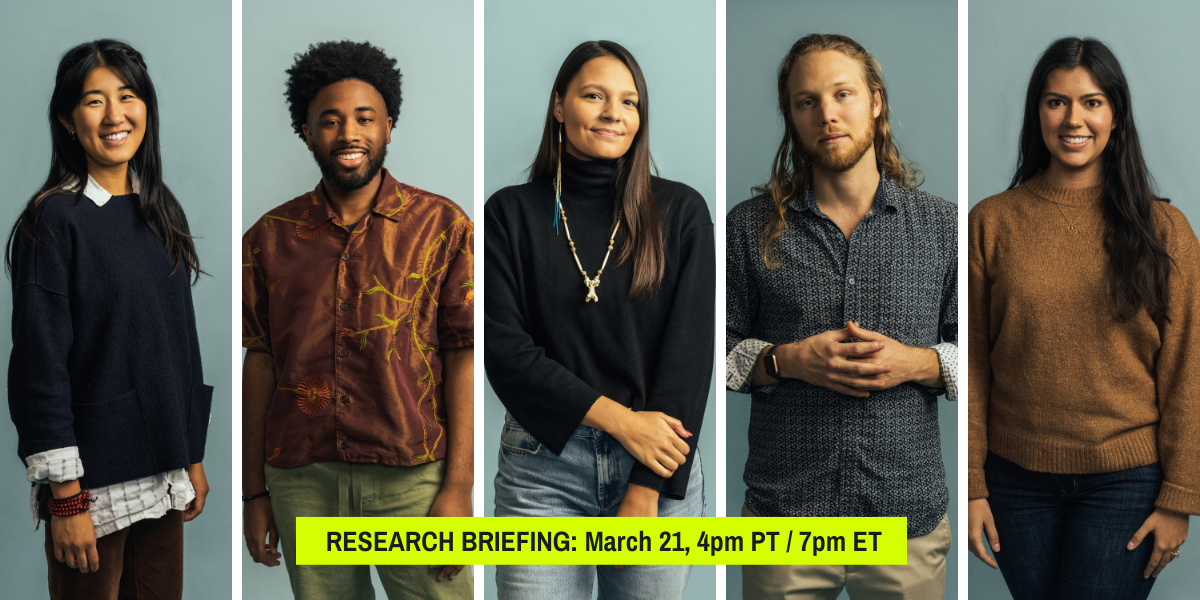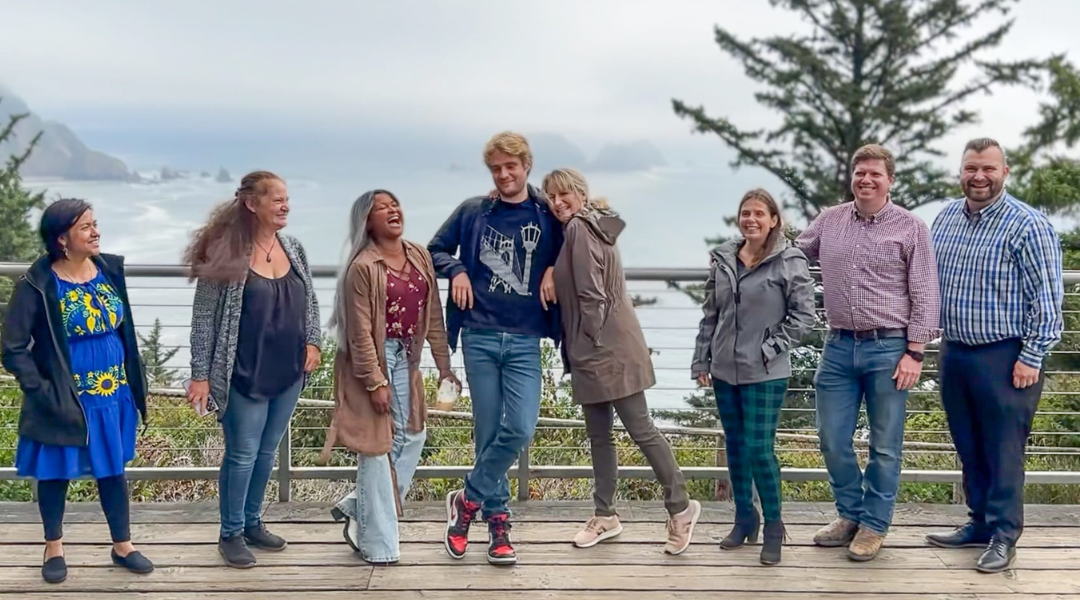We know from our nationally representative study with NORC at the University of Chicago in 2022 that 76% of Gen Z and 70% of Millennial respondents wish they had more opportunities to work across generations for change.
In a new report, What Young Leaders Want — And Don’t Want — From Older Allies, we dug deeper with 31 leaders, ages 18 to 31, who are committed to and experienced in working across generations for change.
They had a lot to say. Here’s a sampling:
- “I wish that older folks could consider what we’re dealing with in this day and age socially, economically, and politically with more empathy and understanding, instead of expecting us to pursue the life path that they took. Things look different for us.”
- “I think a lot of adult allies look at young people as, ‘Aww, they’re so cute.’ It leads to this place where young leaders get complimented a lot but don’t get actual support and resources to sustain the work they do.”
- “I think because [older generations] tend to minimize their own emotions, they can tend to minimize the emotions and struggles of younger generations.”
- “Young people are scared of being canceled, too.”
- “Disagreement is a productive tool. But young people aren’t learning it because most of the conflict we see is online. And there, it’s something we’ve learned to ignore.”
- “I’ve encountered older people who minimize the struggles of young people of color solely because they don’t have relatable lived experience.”
- “The phrase that always got thrown at me was, ‘You are the future, you’re going to solve all the problems in the world,’ and it really rubbed me the wrong way. Don’t put that all on my shoulders, it’s an unfair burden to say one generation is responsible for solving problems that existed before we were even born. I’ve learned to say thank you, but let’s build this thing together.”
The full report presents eight key insights:
- Generational conflict? Not always.
- Personal connection before collaboration. Always.
- No one wants to be dismissed because of their age.
- Cash over compliments.
- Young leaders aren’t afraid to talk about mental health.
- Productive conflict? Digital natives have few models.
- “Paying your dues” isn’t working.
- The future of leadership is cogenerational.
The young leaders we spoke with weren’t shy about offering suggestions for how older people can up their cogenerational game. The report includes nine practical recommendations.
On March 21, we’ll host a special briefing on the report. Speakers include AARP CEO Jo Ann Jenkins, CoGenerate Co-CEOs Marc Freedman and Eunice Lin Nichols and a panel of five young leaders who participated in the study: Serena Bian, Dillon St. Bernard, Loren Waters, Jordan Bowman and Emily Garcia-Green (left to right, below). The 60-minute briefing is free and open to all, but registration is required.

REGISTER NOW →
This report was supported by AARP with additional funding from The Eisner Foundation. We are grateful. A huge thanks, also, to the 31 young leaders who participated in this study — taking time to connect with us and share their honest thoughts and feelings about how to improve intergenerational collaboration.
Links:





